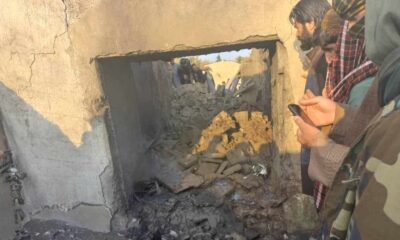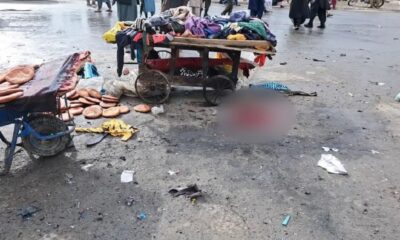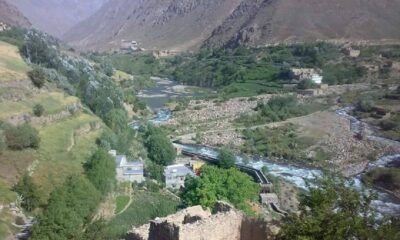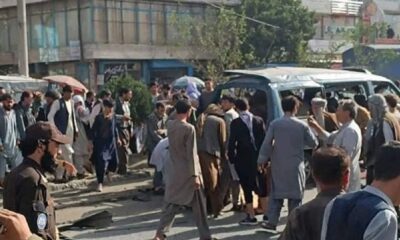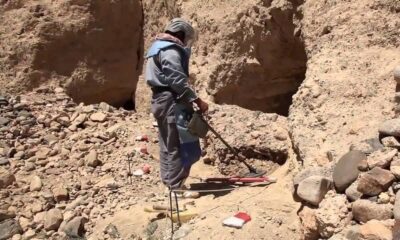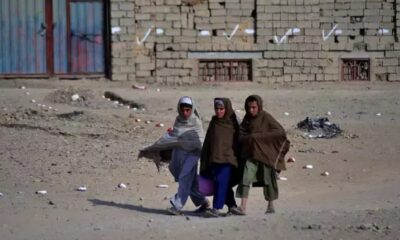Four injured in Kabul blast

Four civilians were slightly wounded in an explosion on the airport road in Kabul, police said on Saturday.
Khalid Zadran, city’s police spokesman, said that the blast occurred near the Sheikh Zayed Hospital.
He added that security forces reached the area and launched an investigation. The injured people have been taken to hospital and are in a satisfactory condition.
There was no immediate claim of responsibility for the blast.

Latest News
UN rights experts call on Pakistan to stop removal process of Afghan refugees
The experts urged Islamabad to immediately stop mass internal relocations, deportations, arrests, evictions, intimidation and other pressures on Afghans
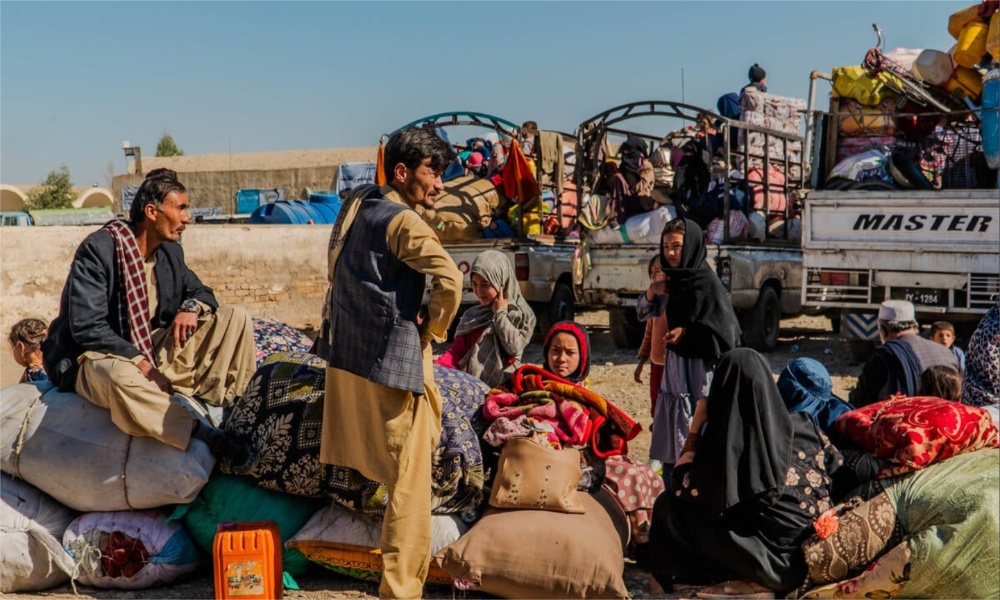
UN human rights experts have called on the Pakistan government to stop their plans to forcibly remove Afghans from the cities of Islamabad and Rawalpindi, nor to deport them to Afghanistan.
According to a statement issued on Friday, the UN experts (as listed below) called on Pakistan to continue its important role as a neighboring country with a long history of hosting Afghan refugees.
The deadline for their voluntary departure was set for 31 March, but Islamabad moved the deadline by a few days to take Eid-ul-Fitr into account.
“Millions of Afghans in Pakistan are at risk of being pushed back to Afghanistan without regard for their genuine protection concerns – including gender-based violence and the systematic dismantling of the rights of women and girls – in violation of international human rights law and refugee law, and disregarding UNHCR’s non-return advisory,” the experts said.
“We urge Pakistan to immediately stop mass internal relocations, deportations, arrests, evictions, intimidation and other pressures on Afghans to cross the border into Afghanistan, and to uphold the absolute and non-derogable principle of non-refoulement,” they said.
The experts expressed particular concern about the gendered and intersectional impact.
The UN experts have repeatedly spoken out against Pakistan’s Illegal Foreigners’ Repatriation Plan of September 2023, which has already pressured hundreds of thousands of Afghans to uproot their lives and return to Afghanistan.
Ahead of the 31 March deadline, the UN documented a worrying increase in arrests of Afghans. Many desperate Afghans have contacted the experts, fearing persecution by the Taliban in Afghanistan if they are forced to return.
“The most vulnerable are Afghan women, girls, LGBTI persons, ethnic and religious minorities, former government officials and security personnel, human rights defenders, and media workers,” the experts said.
“Children, especially unaccompanied, are at heightened risk of trafficking, child marriage and abuse, while persons with disabilities and older persons are also particularly vulnerable. They should all be individually assessed.”
The experts expressed concern about returns of Afghans to Afghanistan from other countries, potentially contravening international human rights and refugee law.
The experts also acknowledged security risks, including terrorist attacks in Afghanistan, as well as Pakistan.
The experts noted that many Afghans who had left for Pakistan, having been given reasonable expectations of being resettled in a third country, had their dreams of a secure future shattered by the sudden halt of resettlement programmes.
They stressed that funding cuts will reduce the ability of the de facto authorities in Afghanistan, together with humanitarian agencies, to support a large influx of people from neighboring countries.
“Abrupt and drastic funding cuts by donors are already having a severe impact on much-needed humanitarian assistance to Afghans,” the experts said.
“Given the deteriorating human rights situation in Afghanistan, durable solutions are needed for Afghans outside the country, with strong support from the broader international community.”
The experts are as follows:
Richard Bennett, Special Rapporteur on the human rights situation in Afghanistan; Siobhán Mullally, Special Rapporteur on trafficking in persons, especially women and children; Laura Nyirinkindi (Chair), Claudia Flores (Vice-Chair), Dorothy Estrada Tanck, Ivana Krstić, and Haina Lu, Working group on discrimination against women and girls; Ben Saul, Special Rapporteur on the promotion and protection of human rights and fundamental freedoms while countering terrorism; Reem Alsalem, Special Rapporteur on violence against women and girls, its causes and consequences; and Balakrishnan Rajagopal, Special Rapporteur on the right to adequate housing.
Regional
Rains add to challenge for Myanmar quake relief, toll at 3,471
Aid agencies have warned the unseasonable rains and extreme heat could cause outbreaks of disease, including cholera, among quake survivors
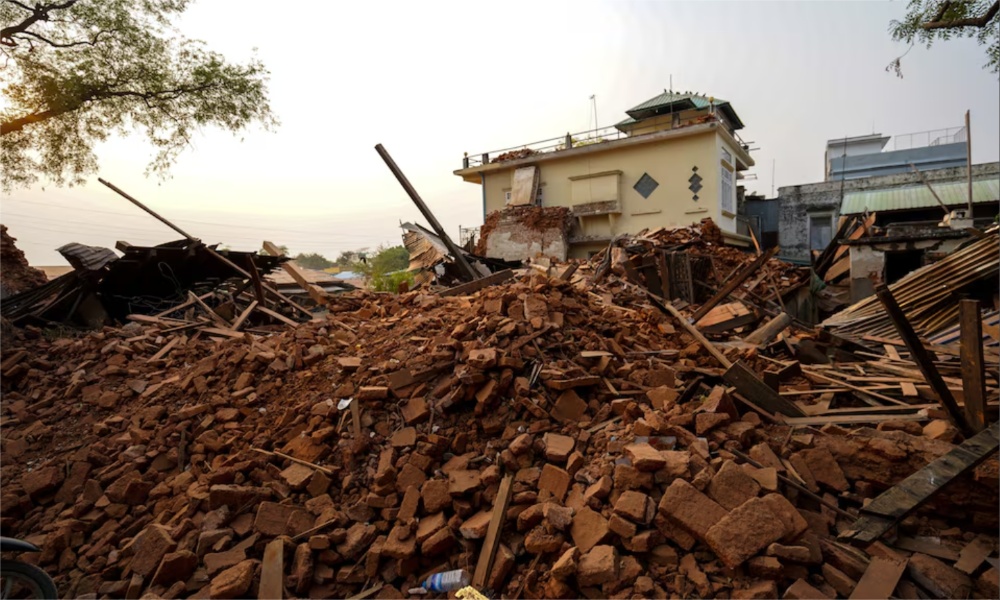
Rains fell on parts of earthquake-hit Myanmar over the weekend, which aid agencies said could complicate relief efforts and raise the risk of disease as the United Nations aid chief said more tents were needed to shelter those left homeless.
The death toll from the powerful quake that hit on March 28 rose to 3,471, state media reported, with 4,671 people injured and another 214 still missing.
Aid agencies have warned the combination of the unseasonable rains and extreme heat could cause outbreaks of disease, including cholera, among quake survivors who are camping in the open, Reuters reported.
“Families sleeping outside the ruins of their homes while bodies of loved ones are pulled from rubble. Real fear of more quakes,” visiting U.N. aid chief Tom Fletcher said in a post on X.
“We need to get tents and hope to survivors as they rebuild their shattered lives,” he said, adding strong, coordinated action was the key to saving as many lives as possible.
Myanmar’s neighbours, such as China, India and Southeast Asian nations, are among those that dispatched relief supplies and rescuers over the past week to aid the recovery effort in quake-hit areas that are home to about 28 million people.
The United States, which was until recently the world’s top humanitarian donor, has pledged at least $9 million to Myanmar to support earthquake-affected communities but current and former U.S. officials say the dismantling of its foreign aid programme has affected its response.
Three U.S. Agency for International Development workers who had travelled to Myanmar after the quake were told they were being let go, Marcia Wong, a former senior USAID official, told Reuters.
“This team is working incredibly hard, focused on getting humanitarian aid to those in need. To get news of your imminent termination – how can that not be demoralising?” Wong said.
In neighbouring Thailand, authorities said that the country’s death toll from the quake had risen to 24. Of those, 17 died at the site of a skyscraper in the capital, Bangkok, that collapsed while under construction. A further 77 were still missing there.
Myanmar’s military has struggled to run the country since overthrowing the government of Nobel laureate Aung San Suu Kyi in 2021, leaving the economy and basic services, including healthcare, in tatters, a situation exacerbated by the quake.
The civil war that followed has displaced more than 3 million people, with widespread food insecurity and more than a third of the population in need of humanitarian assistance, the U.N. says.
While a ceasefire was declared on Wednesday, the U.N. Office of the High Commissioner for Human Rights said on Friday the junta was restricting aid in areas that did not back its rule. It also said it was investigating reported attacks by the junta against opponents, including after the ceasefire.
Business
Iran exports non-oil goods worth over $2 billion to Afghanistan in 11 months
Afghanistan was Iran’s fifth top export destination between March last year and February this year
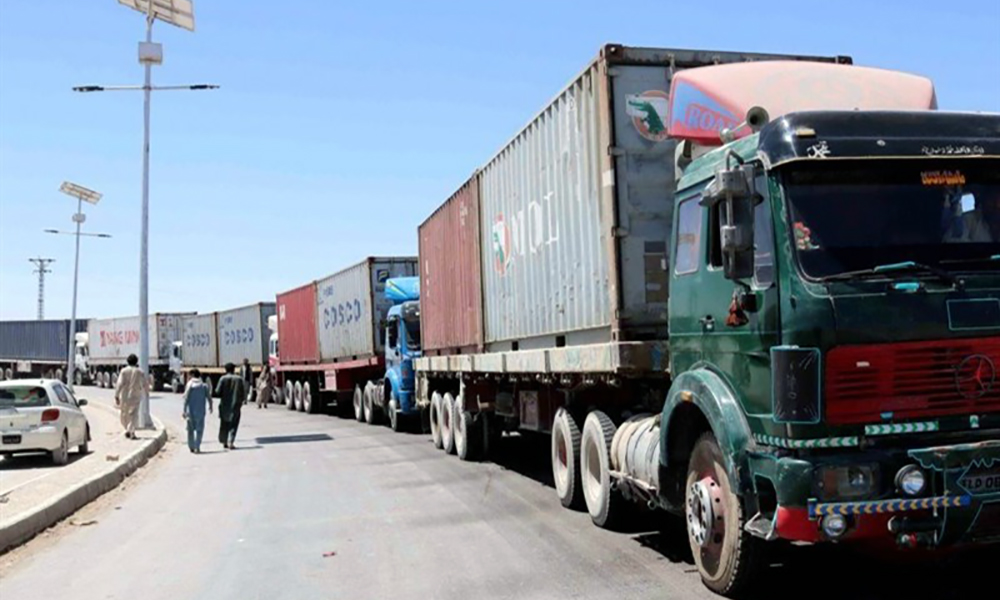
Iran exported non-oil commodities worth $2.2 billion to Afghanistan during the 11-month period from March 20, 2024 to February 18, 2025, the head of Iran Customs Administration (IRICA) said.
Foroud Asgari said Afghanistan was Iran’s fifth top export destination in the mentioned 11-month period, Tehran Times reported Sunday.
In the past year, Afghanistan and Iran have forged closer trade ties. In February, the governors of both central banks met on the sidelines of a banking technology summit in Yekaterinburg, Russia, where they discussed strengthening monetary and banking cooperation.
Also, in October, ports and maritime officials of Iran and Afghanistan met to discuss investment opportunities for the Afghan private sector in Iran’s southeastern Chabahar Port.
Tehran Times reported that this meeting was attended by the director general of the Ports and Maritime Department of Sistan-Baluchestan Province, the governor-general of the province, some Iranian MPs, and officials of the Afghanistan Trade and Industry Ministry.
Meanwhile, in a meeting with an Iranian trade delegation in Kabul last August, Afghanistan’s interim Deputy Prime Minister Mullah Abdul Ghani Baradar Akhund said that his country is eager to attract Iranian investors in order to develop the Afghan mining industry, generate solar electricity and expand railway connectivity.
The Iranian delegation also proposed to launch a joint special industrial zone with Afghanistan.
Afghanistan supplies more than 80 percent of its market needs through imports, and imports from Iran constitute 25 percent of this amount.
The establishment of national security and the central government in Afghanistan over the past two years have improved the conditions of trade between the two countries.
-

 Latest News5 days ago
Latest News5 days agoAfghanistan’s reconstruction is in the interest of EU: Uzbek president
-

 Latest News4 days ago
Latest News4 days agoMinistry of Economy calls on US to release Afghanistan’s frozen funds
-

 Latest News5 days ago
Latest News5 days agoBulgaria brings five people to trial over deaths of 18 Afghan migrants
-

 Latest News4 days ago
Latest News4 days agoPakistan ‘extends’ deadline for a week for Afghans to leave the country
-

 Business5 days ago
Business5 days agoGold climbs to record high as tariff worries bolster safe-haven demand
-

 World4 days ago
World4 days agoAs Iran tensions build, US military moves warplanes to reinforce Middle East
-

 Sport4 days ago
Sport4 days agoIPL 2025: Batters in race for prestigious Orange Cap
-

 World5 days ago
World5 days agoIsrael kills Hezbollah official in deadly Beirut airstrike

